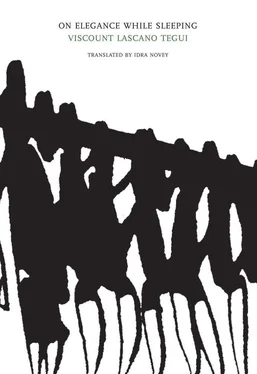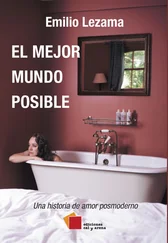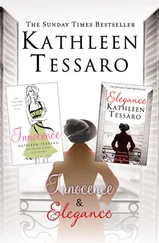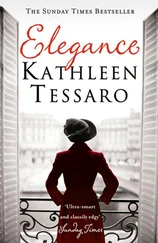MAY 23, 18—
Istill didn’t know what love was. When I approached little girls at school, the natural female scent that emanated from their skin, and which — whenever they noticed it themselves — made them blush, gave me the same vertigo I’d experience later at the nearness of a woman’s breast. The mere aroma of those little girls elevated me to the same delectable heights of emotion that the curves of the bodies of passing women would arouse in me as I matured. For instance, the crisis of sensation when a neighbor named Julia asked me to come up and see her one day. She was a widow. She sat me on her lap and kissed my sex. Julia was my first lover. She took me by the hand with all her thirty-five years of experience. She took a great interest in me.
A spiritualist, she believed staying in Bougival was a way to stay close to the spirit of her husband, who’d drowned in the Seine. Having found over twenty corpses in the sluice gates of the mill by this time, the whole village saw me as one of its favorite sons. A funeral business gave me a hundred business cards to slip into the pockets of the drowned. The family of the deceased always took the hint. The funeral home gave me ten francs for each new client I secured for them. The widow Julia couldn’t escape the spreading oil slick of my fame. The body of her husband had never been found. Would I be the one to find it? Not yet — and in the meanwhile, she couldn’t remarry. Without a corpse, there was no way to verify her bereavement. Since I couldn’t find him for her, she was obliged to solicit a divorce on the grounds that she’d been abandoned. On the eve of the court’s decision, in the presence of a medium, she called up her wandering husband. The medium declared she saw the man’s spirit just behind me, above my head, and he was holding a poster with the words:
An eagle eats a banana,
and all of humanity is golden.
The medium, who was a mason’s wife, interpreted the enigmatic poster as follows:
“Eagle: pride. Banana: perfume. Humanity: warm blood. Gold: fleeting happiness.”
We sat in mournful silence as though we’d understood.
MAY 25, 18—
Iwanted to live my own life. I was fourteen then, which explains my anxiety. A great desire to get as far away as possible dragged me through the streets until nightfall. How would I get home? The spectacle of the countryside always swept me away with it, without objection. At that age, I read adventure books about distant savage continents. How I loved those islands supposedly towed by the dragons of the Middle Ages. Sadly, those islands no longer existed. How I wanted to go into combat with the ferocious natives and wildlife of unexplored lands! They were incomplete beings, above whom floated the arrogant superiority of a boy from civilization.
I knew Stanley’s travel diaries by heart. I read and recited them to the other children in Bougival. The majority of those kids are street toughs now. But what is the apache if not a hunter of wild beasts born into the wrong age?
Having read those books, I saw the world as divided into two hemispheres: the hemisphere of stabbing, and then the far more prestigious hemisphere of shooting.
And I had a photograph of myself taken with a revolver in my hand.
JULY 9, 18—
She was the daughter of an alcoholic. Her father had very white hands, the hands of someone who’d never done a day’s work, and the girl grew up admiring them. At seven years old, she fell in love with a woman who’d touched her hair as she passed. Why? Because the woman had beautiful hands. This was the girl’s only desire. That stranger’s hands had brought her all the sensations of beauty. She was poor and lived alone and never dreamed as a farm-boy does of setting fire to haystacks just to enjoy the magnificence of their burning over the fields at night. But men alone can’t always be the vehicle for all the beauty in one’s life. Pity the woman who gives herself to a man just because he has curly hair or straight!..Thus does she forsake paradise all over again.
One day, her father called to Gabriela, whom we called Mademoiselle Fifí among ourselves. She watched the luminous trail of her father’s hands as they picked up a pocket knife. This movement made his hands even more beautiful than usual, and, taking hold of his penis, he cut it off in front of her. Blood covered his hands as they deposited his organ on the kitchen table. Gabriela lost her mind after that. Still, she was a generous madwoman. She’d offer herself under bridges, in doorways at dusk, between empty stalls in the market. While I took her, she’d lick my hands. As our union ended, her saliva would get thick and foamy like the spit that collects on the bits of runaway horses.
JULY 14, 18—
I’ve watched my family fall the way a leper watches his cold, swollen hands drop off in pieces. My poor parents got old and died.
My father brought back a crocodile from the Amazon; we kept it in a pool covered with wire netting. The crocodile slept for several months and in that time swarms of horseflies and mosquitoes took up residence on his craggy back. They contracted his sleeping sickness from drinking his blood. When the crocodile showed any signs of life, it was almost always on the same side of his body: he’d open the eye along that coast and watch us sadly. He was still tired. The noise from the street, the vibration of carts loaded with beans and potatoes, simply fueled his nightmares. And then, on one of those days when the crocodile opened its eye, a mosquito managed to escape the general lethargy and bit my younger brother, who liked to run his finger along the extensive teeth of our visitor — and thanks to this chance bite, my brother experienced the inexpressible pleasure of serving as a medical experiment. He died of tiredness.
My brother was buried in the lowest, dampest part of the cemetery. The Seine flooded it in winter, when the waters rose. Between the mud and mire, we recovered the cross the current had carried some distance away. The grave itself seemed to have tried to follow its marker, dragging itself along the riverbed, as if that pine box with lead handles no longer contained my brother’s fleshless bones, but simply the divine and Egyptian soul of our sacred crocodile.
AUGUST 2, 18—
They say the gondoliers of Venice are the most agile men on earth. Anyway, of that part of the earth perpetually in motion. I’ve never seen them, but I imagine them to be like black cats, the most agile animals I can think of. If ever a stranger made a real impression on an hour of my life — those hours that have floated by like reflections of clouds — it was the stokers working the steam barges going down the Seine. I’ve seen those stokers up close, leaning on the rails of their ships, weary as Childe Harold, watching the world pass, unmoved by the gray, protean smoke escaping their stacks. Only their eyes have life to them. Pariahs living so close to fire and under mounds of coal, their red pupils were ringed by halos of black dust caught in their long lashes — lashes made beautiful by this carbon: the almond eyes of fabulous, exotic queens. The beauty of their eyes moved me — as Antinous was struck by the eyes of one of Hadrian’s legionnaires.
I’ve known the frissons caused by the mysterious, the hermetic, the Oriental. Eyes that seem to contain in themselves the achievement of all the unspeakable aspirations of our latest literary trends. These were travelers to strange lands — romantic eyes. Fixed in the landscape for an hour, they became suggestive, terrifying, and beautiful, like the eyes in paintings along the dark hall of some damp castle; enormous and fascinating, like the painted eyes of mummies, like the elongated eyes of Egyptians…
Читать дальше












